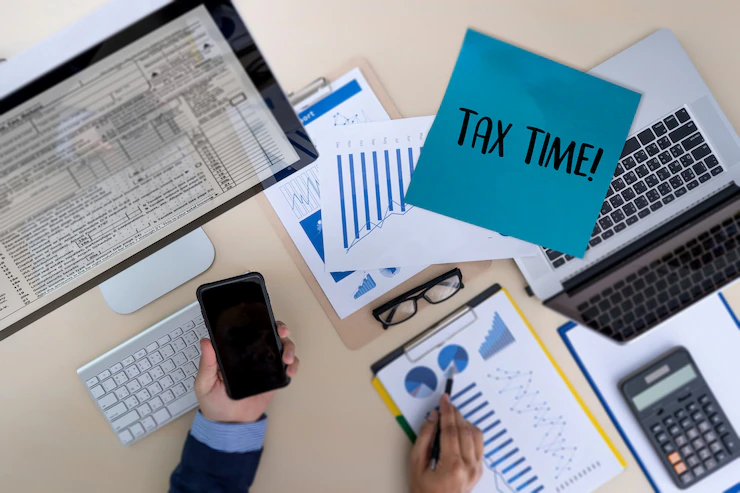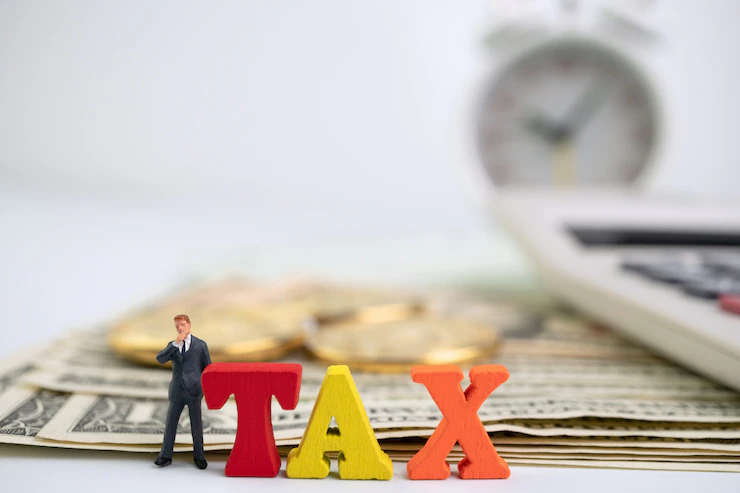Dallas Tax Rates – In-Depth Guide
26 October 2023
6 Mins Read

toc impalement
Hey there, eager explorer! Navigating the financial landscape of any city can be a daunting task, but when it comes to understanding the Dallas tax rates, it’s like diving deep into an ocean of numbers, laws, and percentages.
Dallas, the bustling metropolis in the Lone Star State, has a unique tax structure that’s drawn much attention over the years. Attracting both businesses and individuals, its competitive tax rates have become a talking point for those looking to understand the fiscal health and implications of living in this vibrant city.
An interesting observation is the surge in the number of people relocating to Dallas, captivated by its economic allure and lifestyle opportunities. It’s no surprise that the city’s appeal has led to a boom in the moving industry. A testament to this growth is the rise of reputable movers, like the Evolution Moving Company in Dallas, assisting newcomers in seamlessly settling into their Texan abode.
The intertwining of Dallas tax rates and the city’s growth narrative offers a fascinating perspective. As more individuals and enterprises gravitate towards Dallas, understanding the tax landscape becomes even more essential. After all, taxes, in many ways, shape our everyday decisions and future planning in this urban haven.
History Of Taxation In Dallas
Dallas’s tax history paints a vivid picture of a city constantly evolving. From its early days, heavily reliant on agricultural levies, the tax emphasis gradually shifted. As urban sprawl and the rise of various industries came into play, so did the complexity of its taxation. A dive into this history not only provides insights into the city’s growth but also highlights the strategic changes made in its tax structures over the years. If we reflect on these changes, one can decipher the city’s priorities and its vision for its residents.
Types Of Taxes In Dallas
Dallas, like every other American city, imposes multiple types of taxes. However, to truly appreciate Dallas’s financial charm, one needs to understand the nuances of each type.
Property Taxes
One cannot discuss Dallas tax rates without emphasizing property taxes. These taxes form a significant chunk of the city’s revenue and are primarily channeled towards public services, from schools to well-maintained roads. Now, if you’re thinking, “Are property taxes high in Dallas, Texas?”, the answer varies. While they might seem hefty at a glance, they support the city’s top-notch public amenities.
Property taxes, while substantial, ensure Dallas remains vibrant. The funds gathered from property owners breathe life into infrastructural projects and social services. These taxes, in many ways, are a testament to the quality of life Dallas promises its residents.
- Property Tax: Texas does not have a state property tax. Property taxes are local taxes, and they’re based on the market value of the property as determined by the local appraisal district. In Dallas, as of 2022, the average property tax rate hovered around 2.3%, but this can vary based on specific neighborhoods and the value of the property.
Sales Taxes
Sales tax in Dallas is like the lifeblood of city developments. Every time you make a purchase, a fraction goes into fortifying the city’s reserves. It’s a subtle yet consistent way the city garners funds to maintain its allure and vibrancy. The beauty of sales tax is in its simplicity. It spreads the tax burden across all residents and visitors, ensuring that the city can fund its projects without heavily taxing any one group. Next time you make a purchase in Dallas, remember, that your contribution is shaping the city’s future!
- State Sales Tax: Texas has a state sales tax rate of 6.25%.
- Local Sales Tax: Cities, counties, transit, and special-purpose districts can impose additional local sales and use taxes. These can vary, but for Dallas specifically, the combined rate with the state tax is 8.25%.
Income Taxes
Here’s the golden nugget: “Do you pay income tax in Dallas, Texas?”. The answer is a resounding no! Texas stands proudly as one of the few states that doesn’t levy a state income tax. This is a massive advantage for Dallas residents. Imagine pocketing more from your salary, especially if you’re wondering about “How much is a $100,000 salary in Dallas after taxes?”.
This no state income tax policy is a major draw for businesses and individuals alike. With more money retained from salaries and profits, residents and businesses can invest and contribute more significantly to Dallas’s thriving economy.
How Tax Rates Compare To Other Cities

When the topic of Dallas tax rates arises, it’s inevitable to draw comparisons with other major Texas cities like Houston or Austin. Generally, Dallas showcases competitive rates, making it a tempting destination for both businesses and future residents. While cities like Austin might boast a thriving tech scene, Dallas counters with its financial prowess and lucrative tax incentives. The balance Dallas strikes ensures it remains an enticing city for diverse populations, from entrepreneurs to families.
Benefits Of Dallas Tax Rates
The absence of state income tax in Dallas is undeniably its crowning glory. But that’s just the start. Dallas’s tax system is also ingeniously structured to promote businesses, ensuring the city remains a hub of innovation and growth. Further, with revenue from Dallas tax rates being funneled back into the city, residents enjoy top-tier public services. This symbiotic relationship between the residents and the city ensures that Dallas continues to shine as one of America’s premier urban centers.
Drawbacks And Criticisms
However, no system is beyond critique. A common criticism of Dallas tax rates is the dependency on property and sales taxes. These can sometimes place undue pressure on certain demographics, particularly lower-income families. Yet, while these critiques have merit, it’s crucial to view them in the broader context of Dallas’s overall financial strategy. As with any major city, the balance between revenue generation and resident welfare is a constant juggling act.
How To Calculate Your Taxes In Dallas
Now, diving into the practicalities: how does one navigate the Dallas tax rates and determine their financial commitments?
Tools and Resources
In today’s digital age, there’s a plethora of online tools tailored to help Dallas residents compute their taxes. These platforms can offer insights into property tax obligations or showcase the impact of the city’s sales tax on purchases. While these tools provide valuable guidance, for a comprehensive understanding, one might consider seeking expertise from a local tax consultant. Their in-depth knowledge can demystify even the most complex tax scenarios.
Examples of Calculations
Considering practical scenarios can illuminate the tax landscape. Let’s say you’ve recently moved and are trying to gauge, “How much is a $100,000 salary in Dallas after taxes?”. Or perhaps you’re curious about property tax implications on a new home. Examples and case studies can help you forecast your financial trajectory in Dallas. Taking our earlier example, a property valued at $300,000 would have a specific property tax rate. Such tangible scenarios are invaluable, helping residents plan and manage their finances more effectively.
Related: The Tax Benefits Of Your 401(k) Plan: Is 401k Tax Deductible?
Tips For Dallas Residents
Being a Dallas resident comes with its perks, but it’s always wise to stay updated with the evolving Dallas tax rates. This ensures you’re not caught off-guard and can plan your finances better. Always keep an eye out for tax incentives or breaks, especially if you’re a homeowner or a budding entrepreneur. Furthermore, always remember that while Dallas offers financial advantages, staying informed is the key to truly benefiting from them.
Future Outlook For Dallas Taxes
As Dallas marches forward, what lies in store for its tax landscape? With its rapid expansion and shifting demographics, predictions suggest the city will continue refining its tax structure. Balancing revenue generation with resident welfare will always be Dallas’s mantra. As the city grows, so will its efforts to ensure that the Dallas tax rates remain competitive and resident-friendly.
Conclusion
The intricacies of Dallas tax rates might seem overwhelming initially, but with a deeper dive, one can appreciate the city’s financial wisdom. Whether you’re a long-term resident or mulling a move, understanding Dallas’s tax landscape can empower you to make informed decisions.
Read Also:


















Comments Are Closed For This Article